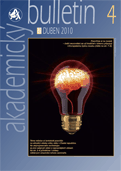Academy of Sciences of the Czech republic › About AS CR › AS CR Structure › Research institutes › humanitni
Institute of Ethnology of the ASCR, v. v. i.
Institute of Ethnology of the ASCR, v. v. i.
Na Florenci 3/1420
110 00 Praha 1
110 00 Praha 1
Phone: +420 234 612 111 (centr.); 234 612 503 (sekr.)
FAX: +420 234 612 511
E-mail: office@eu.cas.cz
Chart: eu_chart.pdf
The Institute was established in 1954 by merging the Institute for National History and the Institute for Folk Songs, which were incorporated into the Czechoslovak Academy of Sciences in 1953. These Institutes had their origins in the first decade of the 20th century. The original name, the Institute for Ethnography and Folklore of the Czechoslovak Academy of Sciences, was changed to the current Institute’s name in October 1999. In 2003, the former Institute of Musicology ASCR merged with the Institute of Ethnology ASCR, and the Department of the History of Music was established within the Institute of Ethnology. Pursuant to Act No. 341/2005 Coll., the Institute became a public research institution as of 1 January 2007. At the same time the Department of the History of Music was renamed a Section of the History of Music.
The Institute carries out research on social and cultural phenomena of nationalities and ethnic groups and is concerned principally with the study of specific Czech ethnicity at the present time and throughout its historical development, with ethnic groups living in the Czech Lands and other countries in Europe and also outside it. There are two branches. The Prague branch focuses its research primarily on Bohemia, and the Brno branch is concerned above all with Moravia and Silesia. The Section of the History of Music is involved in research on the history of musical culture in the Czech Lands in an international context.
The Institute acts as a scientific information centre and has been creating an extensive collection of books, documents and other items of interest. The musical manuscript collection of the Brno section is extremely valuable and contains 70 thousand songs composed over the last 175 years. The systematic collection of these works was of special interest to the eminent Czech composer, Leoš Janáček.





